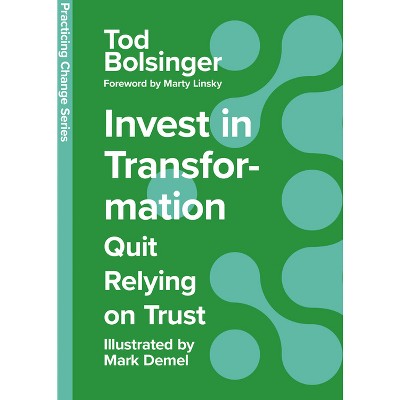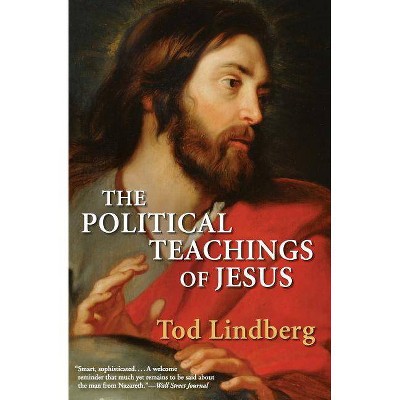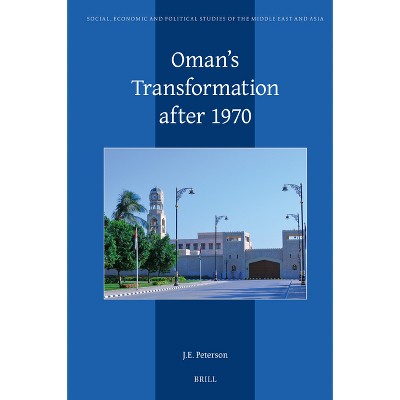Sponsored

The Political Transformation of David Tod - by Lambert Jr (Paperback)
In Stock
Sponsored
About this item
Highlights
- About the Author: Joseph Lambert Jr. is the coauthor of First Citizen: The Industrious Life of Joseph G. Butler, Jr.
- 320 Pages
- Biography + Autobiography, Political
Description
About the Book
"Before his election to the state's executive office in 1861, David Tod was widely regarded as Ohio's most popular Democrat. Tod rose to prominence in the old Western Reserve, rejecting the political influence of his well-known father, a former associate justice of Ohio's Supreme Court, a previous member of the Federalist Party, and a new, devoted Whig. As a fierce Democratic Party lion, the younger Tod thrilled followers with his fearless political attacks on Whig adversaries and was considered an unlikely figure in the battle to keep the Union intact. However, the Civil War and the serious consequences of its potential outcome came to outweigh his loyalty to the Democratic Party. Placing the restoration of the Union above all else, Tod eagerly shed his partisan identity to take up the Union cause. As governor, he quickly pledged Ohio's support to the nation's leader, President Abraham Lincoln. Tod rallied Ohioans to support the war and equipped scores of physicians and nurses with medical supplies to tend to Ohio's wounded soldiers. He also had to protect the state's borders from invasion by developing defenses at home. Despite his patriotic service, partisan politics and political intrigue denied Tod a second term. The Political Transformation of David Tod chronicles Tod's unwavering support for the Union and describes the importance of one man's loyalty to country over partisanship"--From the Back Cover
A governor embraces patriotism over partisanship in a crucial Union state
Before his election to the state's executive office in 1861, David Tod was widely regarded as Ohio's most popular Democrat. Tod rose to prominence in the old Western Reserve, rejecting the political influence of his well-known father, a former associate justice of Ohio's Supreme Court, a previous member of the Federalist Party, and a new, devoted Whig. As a fierce Democratic Party lion, the younger Tod thrilled followers with his fearless political attacks on Whig adversaries and was considered an unlikely figure in the battle to keep the Union intact.
However, the Civil War and the serious consequences of its potential outcome came to outweigh his loyalty to the Democratic Party. Placing the restoration of the Union above all else, Tod eagerly shed his partisan identity to take up the Union cause. As governor, he quickly pledged Ohio's support to the nation's leader, President Abraham Lincoln. Tod rallied Ohioans to support the war and equipped scores of physicians and nurses with medical supplies to tend to Ohio's wounded soldiers. He also had to protect the state's borders from invasion by developing defenses at home.
Despite his patriotic service, partisan politics and political intrigue denied Tod a second term. The Political Transformation of David Tod chronicles Tod's unwavering support for the Union and describes the importance of a politician's loyalty to country over partisanship.
Review Quotes
"Lambert's book renders the complicated story of Tod's metamorphosis from Democrat to Lincoln ally clear and accessible. He also shows how malleable partisan identity could be in the cauldron of the Civil War and offers a rare spotlight on the phenomenon of War Democrats, those political orphans often mistrusted by Republicans and maligned by Copperheads." --Emerging Civil War
"An engaging study of political transformation.... a must read for local history buffs as well as for Civil War enthusiasts." --Tribune Chronicle
"Though never a presidential candidate, [Gov. David Tod] might be one of Ohio's greatest political leaders. Ohio was a key to the Union victory, and Tod's war leadership a major factor in that. Tod has not received the attention due him. Lambert's book remedies that." --Bob on Books
"A highly recommended study, Joseph Lambert's The Political Transformation of David Tod ably addresses a significant gap in the modern biography of northern war governors, many of whom played critical roles in assisting the Lincoln administration's path to Union victory." --Civil War Books and Authors
"This engagingly written book is a marvelous addition to the political history of the Civil War. By bringing Ohio's governor David Tod out of obscurity, Lambert showcases Tod's ability to rise to the challenge of putting the Union above party to restore the nation, and he places Tod's inspired leadership and the nation-state alliance at the forefront of the war's tumultuous years of 1862 and 1863." --Stephen D. Engle, author of Gathering to Save a Nation: Lincoln and the Union's War Governors
"Modern political biographies of Civil War leaders beyond the national and presidential level have been neglected for too long. Joseph Lambert Jr. provides us a study of one of Ohio's war governors, taking us into the experience of politics during the rebellion at the state level with this insightful look at David Tod, a 'War Democrat' whose tenure reflected the deep divisions and political realities of the war years in the Union heartland." --A. James Fuller, University of Indianapolis, author of Oliver P. Morton and the Politics of the Civil War and Reconstruction
"Lambert's detailed and concise biography of David Tod provides a long-overdue study of Ohio's most notable Civil War governor. A lifelong Democrat, Tod became a Lincoln ally, and his leadership during the turbulent years of 1862 and 1863 ensured the Buckeye State would be a steadfast supporter of the Union cause." --Thomas Crowl, author of Opdycke's Tigers in the Civil War: A History of the 125th Ohio Volunteer Infantry
About the Author
Joseph Lambert Jr. is the coauthor of First Citizen: The Industrious Life of Joseph G. Butler, Jr. A former research associate at the Ohio History Connection's Youngstown Historical Center of Labor and Industry, Lambert has been a healthcare administrator for nearly three decades.











